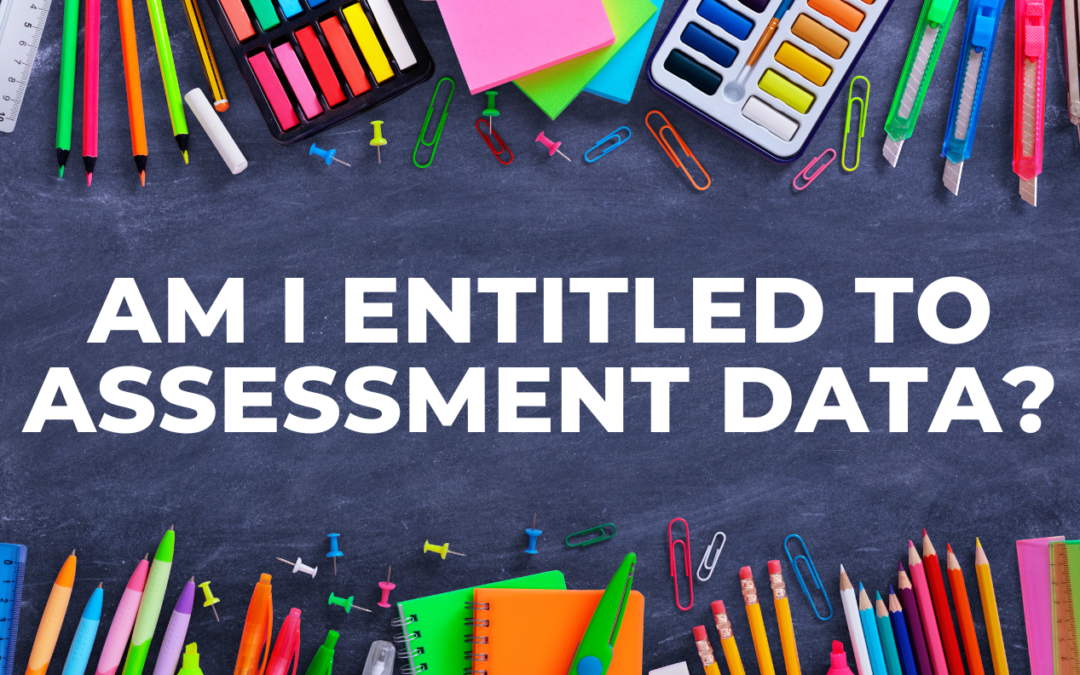Recently a parent told us they had asked for the data taken when the district conducted a triennial assessment on their child. They were informed by the district that their policy is to shred all protocols and data after the assessment has been completed.
Nope! Can’t do that!
When a district conducts an assessment, they must use a variety of assessment tools and strategies to gather relevant functional, developmental, and academic information to determine both whether the child is a child with a disability and the content of the child’s IEP.
Within those assessments are what we call protocols. A protocol is a specific subset (or test) of an assessment. For example, the Woodcock-Johnson Tests (WJ III) is an assessment that looks at cognitive and academics abilities and is commonly part of a psychoeducational assessment. Perhaps you have received questionnaires when completing an assessment? Those were likely the protocols.
The data from these assessments is important. First, the data provides key insights into a child’s disability. Second, a good amount of what is in those protocols is not often referenced in the actual assessment report. Third, they need to be done correctly. If these assessments are done incorrectly, the validity of the entire assessment could be problematic. Finally, because it would be hard to participate in an IEP without them.
Courts are particularly concerned when a parent is not able to effectively participate in an IEP meeting, and the failure to provide required information can be a denial of parent participation. Specifically, courts have stated:
“in interpreting evaluation data for the purpose of determining both if a child is a child with a disability and the educational needs of the child, each public agency must draw upon information from a variety of sources, including aptitude and achievement tests, parent input, and teacher recommendations, as well as information about the child’s physical condition, social or cultural background, and adaptive behavior; and ensure that information obtained from all of these sources is documented and carefully considered.”
34 C.F.R. § 300.306(c)(1) (M.M. v. Lafayette)
Of course, a lot of parents do not review the protocols. They are difficult to understand and have little to no explanation within them delineating exactly what the internal scores mean. But they are required to be provided when asked and must be kept in a student’s records.


Recent Comments